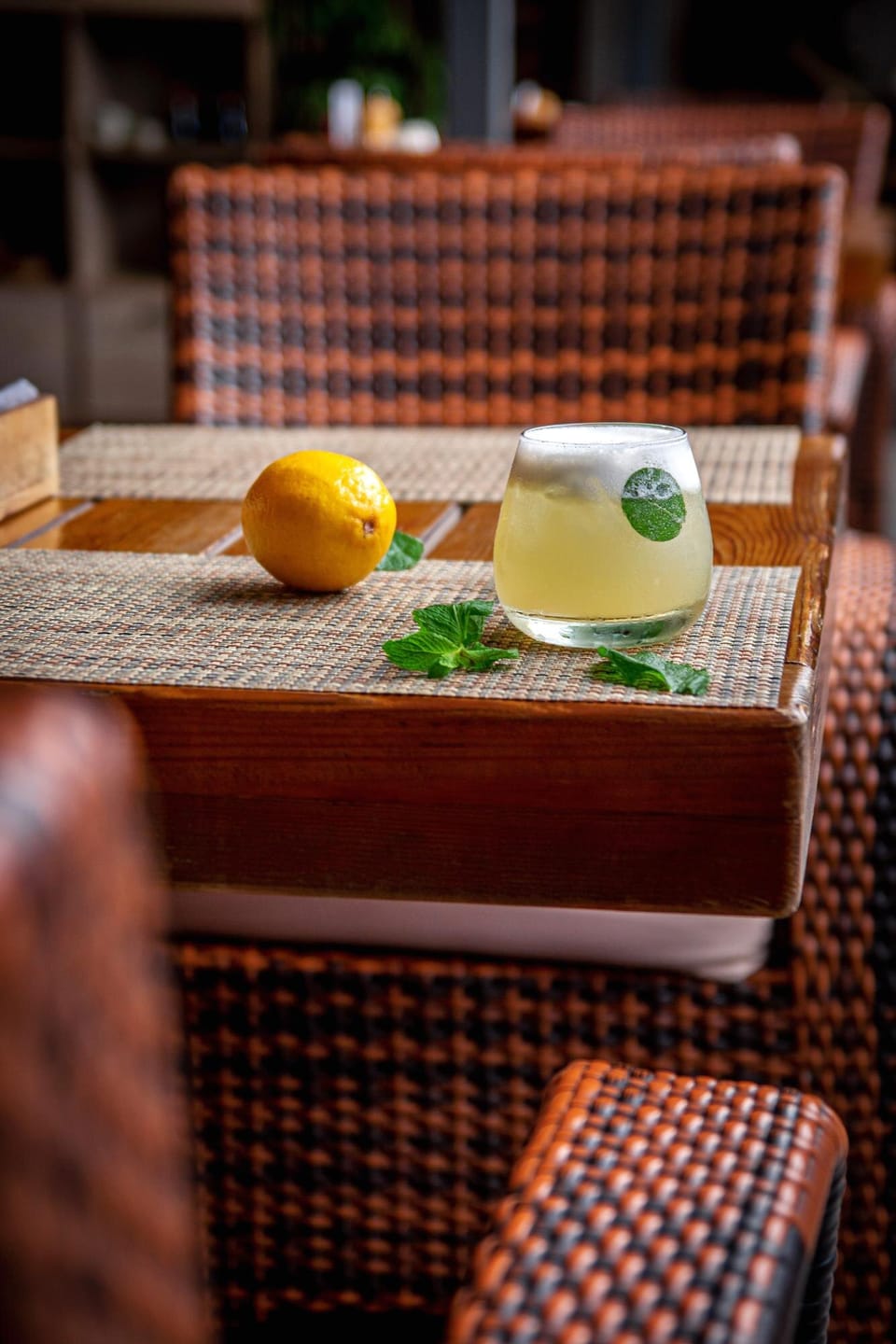Embark on a sensory voyage to the picturesque Jeju Island with each sip of this vibrant Korean citrus tea. My fascination with this elixir began after a friend, who had just returned from a trip to Korea, shared a jar of the original Jeju citrus preserve with me. The first time I tried to recreate it, I underestimated the importance of balancing sweetness with the inherent tartness of the citrus. It's a delicate dance, one that I've since mastered through trial and error. This recipe is my homage to the traditional Korean Yuja-cha, using the unique Jeju citrus fruits for an authentic taste of the island's natural bounty.
My initial attempts were clumsy, resulting in either an overly sweet concoction or a brew so tart it made my eyes water. But as I refined the process, I discovered the secret lay in the gentle simmering of the fruit and the precise ratio of honey to citrus. Now, after numerous tastings and adjustments, I've perfected this Jeju Island citrus tea recipe, a soothing, honeyed beverage that warms you from the inside out. Let's create this comforting tea together, a perfect blend of tangy and sweet, with a whisper of ginger's warmth.
Ingredients
- Jeju Island citrus fruits (Hallabong and Cheonhyehyang) — 3 of each, thoroughly washed
- Raw honey — 1 to 1 1/2 cups, depending on desired sweetness
- Fresh ginger — 3-inch piece, peeled and thinly sliced
- Water — 4 cups
- Pine nuts — a handful for garnish (optional)
Instructions
- Begin by slicing the Jeju citrus fruits into thin rounds, discarding any seeds you encounter. The beauty of this tea lies in the visual appeal of the citrus slices suspended in the honeyed liquid, so aim for consistency in thickness. I learned that slicing too thick can result in an underwhelming infusion of flavors, while too thin can make the fruit disintegrate during the preservation process.
- In a large pot, combine the water and ginger slices. Bring to a gentle boil, then reduce the heat and simmer for about 10 minutes. This step is crucial as it allows the ginger to impart its warmth and subtle spice to the water, creating a base that complements the citrus without overpowering it. In my early trials, I added the ginger directly to the preserve, which resulted in an overly pungent ginger flavor that dominated the delicate citrus notes.
- After simmering, remove the pot from the heat and let it cool slightly. Strain out the ginger pieces and return the ginger-infused water to the pot. The straining is a step I once overlooked, leaving me with a tea that was texturally unpleasant. The goal is a smooth, comforting drink where the citrus can shine.
- Add the honey to the ginger water, stirring gently until it dissolves completely. The amount of honey you use can be adjusted to taste, but remember that the citrus will also contribute its natural sugars. I've found that starting with less honey and adding more as needed allows for greater control over the sweetness level.
- Now, carefully place the citrus slices into the honey and ginger mixture. Over medium-low heat, let the mixture come to a gentle simmer. The key here is not to boil the fruit, as high heat can cause bitterness and destroy the fresh, zesty flavor we're after. Simmer for about 20 minutes, or until the citrus peels become slightly translucent. This slow infusion is a technique I refined over time, ensuring that the citrus releases its essential oils and juices into the syrup, creating a harmonious blend.
- Once the citrus slices are poached to perfection, remove the pot from the heat and allow it to cool completely. The cooling process is as important as the simmering, as it gives time for the flavors to meld together. I've rushed this step before, only to find the flavors hadn't fully developed.
- Transfer the cooled citrus tea into a sterilized jar, ensuring the slices are submerged in the syrup. Seal the jar and refrigerate for at least 24 hours before using. This resting period allows the citrus to further infuse the syrup, and I've noticed that the longer it sits, the more pronounced the flavors become.
- To serve, spoon 2-3 slices of the citrus along with the syrup into a cup and pour hot water over them. Stir gently to combine. If desired, garnish with a few pine nuts for a traditional Korean touch. The pine nuts float on the surface, adding a textural contrast and a hint of nuttiness that complements the citrus beautifully.
Substitutions
- Jeju Island citrus fruits — If you can't find Hallabong or Cheonhyehyang, you can substitute with a combination of oranges and Meyer lemons. The flavor will be slightly different, but still delicious. I've used this substitution when Jeju fruits were out of season and was pleased with the results.
- Raw honey — For a vegan option, agave syrup or maple syrup can be used in place of honey. These alternatives bring their own unique flavors that can add an interesting twist to the tea.
Variations
- Spiced citrus tea — Add a cinnamon stick and a few cloves to the ginger water for a spiced version. The warm spices introduce a cozy complexity that's especially welcome during the colder months.
- Herbal infusion — A sprig of fresh rosemary or thyme added to the simmering citrus can impart an aromatic herbal note that's surprisingly refreshing.
Dietary Restrictions
- Sugar-free — For those avoiding sugar, a sugar-free sweetener like stevia or erythritol can be used. Keep in mind that the consistency and flavor will be altered, so adjust the quantities to your preference.
Equipment
- Large pot
- Sharp knife and cutting board
- Fine mesh strainer
- Sterilized glass jar with lid
- Measuring cups and spoons
Storage and Reheating
- The citrus tea preserve can be stored in the refrigerator for up to 2-3 weeks. The flavors will intensify over time, so each cup of tea will be a new experience. I've found that the preserve never lasts long in my house, as it becomes a daily indulgence.
- To enjoy the tea warm, simply add hot water to your desired amount of citrus preserve. There's no need to reheat the preserve itself, as the hot water will warm the citrus slices and meld the flavors perfectly.
Pro Tips
- Preserve texture — To maintain the best texture of the citrus slices in the preserve, avoid boiling them vigorously. A gentle simmer is all that's needed to infuse the honey syrup with the essence of the fruit.
- Slice uniformity — Use a mandoline slicer for perfectly even citrus slices. Uniform slices not only look more appealing but also ensure that each piece of fruit infuses the syrup at the same rate.
- Sterilization — To prevent any bacterial growth and to extend the shelf life of your citrus tea preserve, make sure to use a sterilized jar. You can sterilize jars by boiling them in water for 10 minutes or by using a dishwasher with a sterilize setting.






